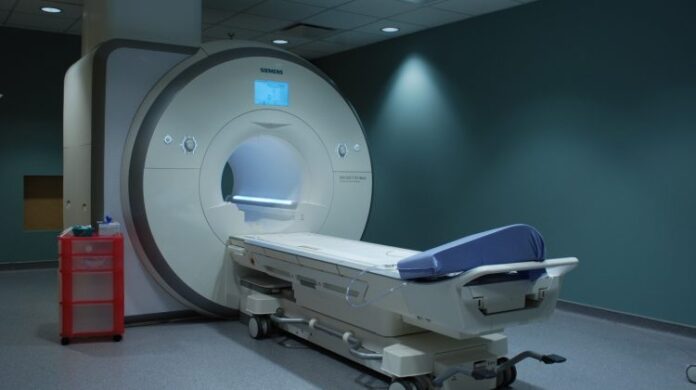More people in British Columbia were able to access a magnetic resonance imaging (MRI) or computed tomography (CT) scan in 2023-24 than ever before, thanks to more machines, hours of operation and technologist staff being added to the public health system.
“In 2023-24, we worked together with the health authorities and medical imaging teams to increase our capacity to perform more medical imaging in B.C.” said Adrian Dix, Minister of Health.
“The data show we have performed more than 322,000 MRI exams and over 994,000 CT scans. We are committed to finding ways to put patients first and reduce wait times so they can get their treatment and recover sooner.”
Since 2016-17, the number of MRI exams performed each year in B.C. has increased by 83%. This past year, health authorities and medical imaging teams performed 322,000 MRIs, which is an additional 146,300 exams more than 2016-17.
The number of CT exams has increased by 43%, more than 298,800 exams. This is the result of adding 18 net-new MRI scanners, bringing the total to 43 from 25, and adding nine net-new CT scanners, bringing the total to 72 from 63.
In addition to adding new scanners, government has added the capacity of existing scanners to serve patients by increasing the number of hours per week they operated.
To build medical imaging capacity, the Province has added 18 new MRIs and nine new CT scanners around B.C.
For B.C. Interior: three new MRI units were added to the region and two new CT units.
In March 2024, MRI scanners throughout the province operated 4,960 hours per week. That is 1,514 more hours per week than in March 2017.
CT scanners throughout the province operated for 6,693 hours per week in March 2024. When comparing B.C.’s per-capita rate for CT exams between 2016-17 and 2023-24, the number of people who received a CT exam grew from 143 per 1,000 population to 180 per 1,000 population.
“As we continue to advance in medical imaging technology, it is vital we support and invest in these life-saving tools. MRI and other imaging devices are more than just diagnostic machines; they are a beacon of hope for countless patients like me, offering a chance at life and a future.” said Logan La Rou, a patient
The Canadian Institute for Health Information annual report on how long Canadians waited for priority procedures, such as surgery and diagnostic imaging, in 2023 shows that B.C. has the second-shortest wait time in Canada: nine out of 10 people in B.C. waited 159 days or less for their MRI exam.
From 2019 to 2023, the number of full-time equivalent MRI technologist staff has increased by 133%. The Province is continuing to strengthen the health-care workforce, including medical radiation technologists, through B.C.’s Health Human Resources Strategy, announced in 2022, and the Allied Health Strategic Plan, announced in December 2023.
Building the Workforce
With more net-new MRI and CT machines being added and more people coming to live in B.C., key steps are being made to expand the health workforce across the province.
As of April 1, 2024, new initiatives support hiring eligible rural and urban health-care workers in priority occupations. They provide up to $30,000 for filling high-needs vacancies in Northern Health, up to $20,000 in other rural and remote areas, and up to $15,000 available for specific difficult-to-fill vacancies in urban and metro communities.
In addition, effective April 1, 2024, the Provincial Rural Retention Incentive for health-care workers living and working in rural and remote communities was expanded. All occupations working in eligible communities will receive the incentive, up to $8,000 per year, per person.
To recruit students to priority health education programs, the Province is also investing in training incentives, including a $2,000 bursary per program year to students enrolled in medical-radiation-technology health education programs as of September 2023. Additionally, new allied health graduates will be provided with a $500 bursary to offset licensing or certification exam fees.
The Province also launched a new direct-entry diploma program to train more MRI technologists in January 2023 in partnership with the ministries of Health and Post-Secondary Education and Future Skills, along with the B.C. Institute of Technology (BCIT). The program launched with 12 students. Another group of 14 students joined in 2024, with the first graduates expected in 2025.
As well, BCIT students who are health authority employees are also receiving tuition and stipend funding as part of the MRI technologist bursary program. Since the bursary program was first offered, 67 students have taken advantage of the funding.
Be the first to know! Don’t miss out on breaking news and daily updates in your area. Sign up to MyNelsonNow News Alerts.





